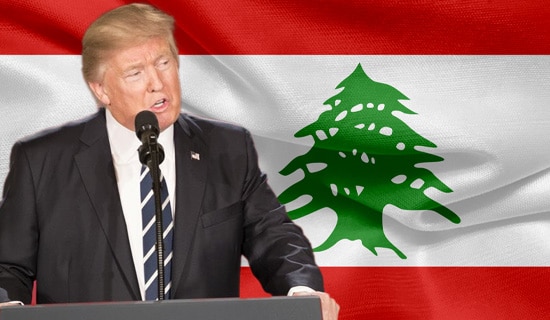Dr. Soheib Bencheikh was born in Jeddah, Saudi Arabia in 1961, studied Islamic theology at Al-Azhar University and received his doctorate from the prestigious Parisian Ecole Pratique des Hautes Etudes (EPHE). Formerly the mufti of Marseilles, France, he is a member of the French Council for the Muslim Religion [1] and head of the French Institute for Islamic Science. [2] Recently, he announced his candidacy for the April 2007 French presidential election, and launched his election website (http://www.elanrepublicain.net ). In addition, one of his supporters maintains a blog (http://soheib.bencheikh.over-blog.com ) that includes interviews he has given to the press, as well as links to other French Muslim reformist websites.
Bencheikh believes that French-style secularism is a necessary precondition for the reform of Islam, and he calls on both Muslims and non-Muslims to participate in critiquing Islam, reinterpreting its holy texts, combating fundamentalism, and helping Islam adapt to the modern era.
The following are excerpts from interviews Bencheikh gave to French and Algerian newspapers that were posted on his official website:
Islam Has Become Obsolete
Bencheikh says that Islam came into being in tribal societies and is still focused on the tribal lifestyle. Thus, he says, it should be reformed to address the needs of modern life: "...Religious teachings were developed and formulated between the eighth and 12th centuries, and have not undergone any reform or updating since that time... In the 60s, most Muslim countries chose political modernity. Most of them became either republics or constitutional monarchies. But these choices remained completely theoretical. [There] was no reform to [adapt] Muslim theology to this historical transformation. Consequently, [Muslims today] experience a dangerous discrepancy between their status as citizens and their status as believers...
"This static theology we inherited was conceived for an Islam that was the religion of the majority and had sovereignty over its lands. Moreover, it was conceived for tribal societies. This theology was meant for times when nations hardly came into contact [with each other] - and if they did, it was in a spirit of rivalry for dominance. This theology could not care less about living in harmony with other cultures, and knows nothing of pluralism based on universal principals like secularism and religious freedom - [principles that are] applicable to all religions and granted to all." [3]
Bencheikh also explains that Islamic jurisprudence was aimed at managing Muslim life in a tribal society and must therefore be reformed: "[To take] Islamic jurisprudence - which was inherited from [tribal] societies - and turn it into a kind of universal jurisprudence applicable to all periods means to 'bedouinize' Islam and prevent Islamic societies from evolving... In Algeria, for example, fiqh [Islamic jurisprudence] is still applied... If I divorce my wife, she will have to leave our apartment with her children. Why is it like that? Because at a time when life was organized into tribes - and not into city blocks [as in modern times] - the divorced wife had to leave her husband's clan in order to go back to her father's clan. [In fiqh,] nothing has changed, even though the social framework has changed completely."
Political Islam Is Heresy
Bencheikh states that political Islam is a heresy promoted by the Arab states: "The first heresy in Islam in the 20th century was the politicization of Islam. As soon as Muslim countries became independent came the birth of political Islam - i.e. a kind of Islam that is dictated by the state, obeys only the state, and is merely an organ of the state - since it helps the state to increase its power and oppress the people... We are all familiar with the failures and the bloody [inclinations] of political Islam.
"In the Muslim countries, the state still pays the imams' salaries. It is the state that promotes Islam - but what kind of Islam? The kind of Islam that is not familiar with [the concept of] citizenship, but only [the concept of] subjects; the kind of Islam that is not familiar with [the concept of] a state [based on citizens'] rights, but only with the rights of the prince; the kind of Islam that is not familiar with democratic elections or with the free expression of a sovereign people, but only with the oath of allegiance [to the ruler].
"I am convinced that the Islamic state promotes its own destruction by teaching a kind of Islam that does not reform itself, and that still relates to traditional, patriarchal and tribal societies." [4]
Bencheikh draws a distinction between Islam as a humanist religion and Islam as a political tool, stating that Muslim theologians have a responsibility to promote humanistic Islam: "It is up to us Muslims who are versed in religious science to make the distinction, in the minds of Muslims and non-Muslims alike, between a religion based on spirituality, humanism, and civilization [on the one hand], and a purely instrumental use [of religion], which aims at seizing worldly, material power [on the other]..." [5]
"Any Attempt to Reform Islam Must Disregard Its Sanctity and Reread the Texts in the Light of Modern Thinking, in Quest of a [New] Orientation"
Bencheikh draws another distinction: between the Koran's eternal message and its violent aspect - which, he says, is derived from the historical context of conflict in which it was revealed. He writes: "The Koran contains approximately 10 verses that encourage Muslims to carry weapons for the purpose of self-defense... There are verses promoting respect for Jews and Christians, along with verses advocating the use of unrestrained violence against polytheists. However, most of these verses must be... seen in [the light of] their historical context... I will not be so cruel as to remind [readers] that the Old Testament also... includes verses loaded with violence. However, this does not lead me to say that the Bible encourages a theology of conquest and domination. It only means that sacred texts must always be seen in [the light of] the context in which they were revealed and passed on [to the next generations]. We must reinterpret them in order to extract their eternal, universal value - instead of [using them to] legitimize political and personal agendas." [6]
According to Bencheikh, "any attempt to reform Islam - and Muslim jurisprudence in particular - must disregard its sanctity and reread texts in the light of modern thinking, in quest of a [new] orientation..." [7]
He adds that not criticizing Islam is tantamount to contemptuous dismissal of it: "Islam must be criticized, just as Christianity was [criticized] during the Enlightenment. Islam is a message for all humanity. Therefore, it is not the property of Muslims [alone]. Everyone has the right to be fascinated by this religion, to adhere to it, to be critical of it, and even to be hostile to it... To avoid criticizing Islam is a form of segregation. We must admit that Muhammad was a human being. [As such] he was fallible, and his message is open to interpretation." [8]
Bencheikh adds that "the majority of Muslims - the ordinary people - want an open, moderate Islam. They want to hear innovative, modern discourse. This is [the trend] I want to promote... Moderate [Muslims] are the majority, but they do not take action. This is always the case with silent majorities. Radical movements, on the other hand, benefit from groups of activists [organized in] parties... There is a need for a thoroughly new organization [that will promote moderate Islam]." [9]
Secularism is Key to a Reformed Islam; The French Experience... Provides the Possibility of a Reformed Islam, But France Will Be Able to Foster the New, Reformed Islam Only If It Adheres to the Secular Values of the French Republic
According to Bencheikh, the rereading of texts "in the light of modern thinking" can only take place in a secular context. He says that the French experience in particular provides the possibility of a reformed Islam, [10] but that France will be able to foster the new reformed Islam only if it adheres to the secular values of the French Republic: "Islam... must adapt to modernity, century after century. I call on the French to remain faithful to the historical mission of France. I call on the Muslims to do the only thing that will save them: to stick to the basic principles [of the French State], such as secularism." [11] Bencheikh explains that secularism is not atheism, but a set of laws enabling tolerance: "I believe that inter-religious understanding is another word for secularism... I believe that religion lives under the [protection] of secularism." [12] He adds that the Left should remain faithful to its mission of protecting secularism: "I am a Leftist, and I am appalled at the collapse of the ideals of the Left [in France]..." [13] He adds: "I am not against the Left. On the contrary, I deplore its absence... The Left was always less timid [than the right]..., more receptive to equality and universal causes. Where has this Left gone? [The Left today] wastes its energies looking for the most charismatic figure, for whom people will vote. Where are the ideas? Where are the plans [for the future]? Is there [still] a Left that believes in its own message?" [14]
Endnotes:
[1] The French Council for the Muslim Religion was established in 2003, with the support of Interior Minister Nicolas Sarkozy, as an umbrella organization for Islamic associations that works vis-à-vis the French government.
[2] Institut Supérieur des Sciences Islamiques: http://www.institut-issi.fr/Niv_Sens_Gd_Pub.htm.
[3] Excerpts from Marianne et le Prophète, l'Islam dans la France Laïque, Paris: Grasset, 2006.
[4] Le Monde (France), November 19, 2001.
[5] Le Soir d'Algérie (Algeria), October 27, 2002.
[6] Le Monde (France), November 19, 2001.
[7] "Quotations by Soheib Bencheikh": http://soheib.bencheikh.over-blog.com/categorie-733578.html.
[8] Le Parisien (France), October 3, 2006.
[9] Le Parisien (France), January 21, 2004.
[10] Marianne et le Prophète, l'Islam dans la France Laïque, Paris: Grasset, 2006.
[11] La Nouvelle République d'Alger (Algeria), July 8, 2006.
[12] Le Dauphiné Libéré (France), October 16, 2002.
[13] Charlie Hebdo (France), October 4, 2006.
[14] La Nouvelle République d'Alger (Algeria), July 8, 2006.








